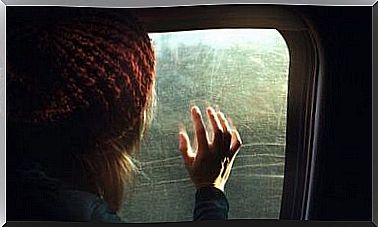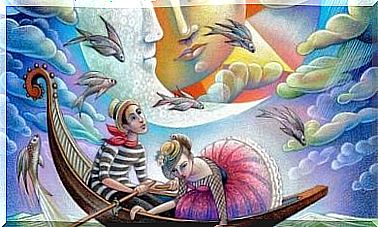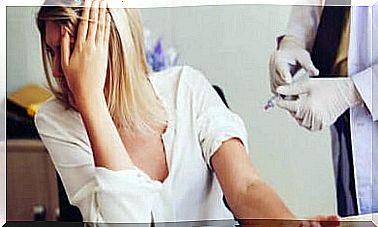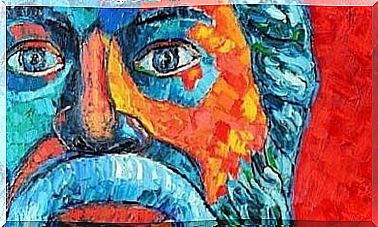Negative Mood In Depression: What Is Meant?

When we talk about negative mood in depression, we must imagine a cloud full of guilt, anger, malaise, sadness and in which, at least in appearance, despair prevails.
It is a devastating mix, made up of endless brushstrokes of despair, of chiaroscuro in which to feel lost and stuck for months in this mood disorder.
While delving deeper into these clinical realities, it is important to take another aspect into account. When we speak of a negative mood, we are not referring only to that universe made up of adverse and unpleasant sensations and feelings.
This negativity includes “feeling nothing”, because in this psychological condition there is often the low activation typical of anhedonia, or the inability to feel pleasure, interest or motivation.
It also doesn’t hurt to become aware of the fact that suffering from depression is one of the most complex experiences from a psychological point of view. It doesn’t just mean feeling sad and unwilling to get out of bed.
The mind of the recipient of this diagnosis is also charged with self-hatred, guilt and, of course, eternal despair.

What is meant by negative mood in depression?
Major depression is among the most common psychological disorders. The most interesting, and most troubling, aspect is that many people continue to assume that depression is synonymous with sadness.
The negative mood in depression is like a psychological filter that guides our mind in its search and in the harmful reworking of reality.
Furthermore, we can add other factors, such as the application of an external locus of control (for example, thinking that you have nothing under control), recurrent negative thoughts, or very low self-esteem.
The aforementioned theory was elaborated in the 1980s by Watson and Tellegen in a famous study in which it was stated that this model could be explained by three elements: the effect of the negative meaning, anhedonia and physiological alterations.
The sense of guilt and anger: two emotions that contribute to the prison of depression
This data is curious. We know that people who have had a relationship governed by physical and psychological violence are more prone to developing a depressive disorder.
The negative mood theory shows that it is neither sadness nor despair, but anger and guilt that fuel this form of disorder.
Some studies, such as those conducted at the psychology faculty of the University of the Balearic Islands (Spain), have allowed us to investigate this aspect: the importance of working on these dimensions in the case of women victims of violence.
In them coexists, on the one hand, the sense of guilt that derives from not having concluded the toxic relationship first and, on the other, the anger linked to what they lived.
Negative mood in depression and introspective states
We said that a characteristic of depression is, without doubt, vulnerability; in addition to the lack of control over what surrounds us and the feeling that whatever we do, nothing will change.
Well, there are other dynamics, equally decisive and also fertile ground for the negative mood in depression : the introspective states. What is meant by the latter concept? In essence, it involves the following aspects:
- Sense of loneliness. The feeling that no one can understand what happens to us.
- Feeling useless. Convince yourself that you are good for nothing, that you do not count for anything in society, in relationships, etc.
- Continued short temper. Suddenly anything annoys us, angers us, irritates us or upsets us.
- Despair. This dimension is the eternal leitmotif of cases of depression; it is the idea that tomorrow will bring nothing good, that problems have no solution.

Poor emotional activation: anhedonia
The negative mood in depression is also associated with not feeling, not reacting and not feeling any connection to the reality in which you are immersed. We are not referring to catatonic states, but to behaviors according to which one stops feeling an active part of daily life.
L ‘ anhedonia, apathy and even apathy outline made reality of the absence of pleasure, motivation, enthusiasm; as well as the inability to make decisions and react to what happens to us.
Therefore, there is no need to dwell on the idea that depression is synonymous with sadness. And this is because we are faced with a multifactorial reality, which not everyone lives in the same way.
Yet, shifting attention to the emotional aspect is essential to understand the reason for that perennial anger or those psychosomatic illnesses that do not improve despite the drugs.
As Federico Garcia Lorca said, “The most terrible of sensations is the feeling of having lost hope”. We must not hesitate to ask for help if we are experiencing a similar situation.









